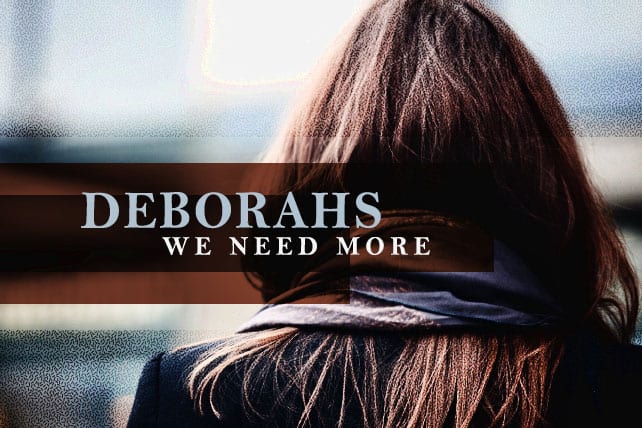My wife and I have three daughters—ages 11, 9, and 7. (We managed to sneak a little boy in there at the end, but ours is still a house full of women.) So the story of Deborah, the first and only female judge in Israel, speaks deeply to what I hope and pray for my daughters.
More than almost any other passage in Scripture, Deborah’s story reminds us that God gives women every spiritual gift He gives to men.
The Whole Bible Is for Women
There’s a myth alive today that men should study theology while women focus on homemaking or emotional encouragement. Many women’s conferences teach only from Ephesians 5, as if the rest of the book is for men.
At the risk of stating the obvious: the entire Bible is for women.
If women want to know God’s will, they can’t limit themselves to Ephesians 5 or Proverbs 31. Every chapter, every verse, every promise of Scripture is theirs.
Women shaped by the Word don’t become weak or dependent. They become leaders. Deborah certainly was.
Deborah’s Example: A God-Called Leader
Deborah was a prophet and a judge—Israel’s wisest counselor and a national leader during a time of war.
Some say she only led because “no men would step up,” but Scripture never says that. Deborah’s leadership was not a shame on Israel; it was a gift from God.
God called her, equipped her, and used her to lead His people with courage and faith.
Women’s Ministry Must Be More Than Marriage and Motherhood
At our church, we don’t see women’s ministry as simply creating better wives and mothers—though that’s a beautiful calling for many. We believe God calls women to leverage their lives for His kingdom in every arena.
When God calls women to lead, we should equip them to lead.
Distinct Roles, Shared Gifts
Does this mean there are no distinctions between men’s and women’s roles? Not at all.
In both Old and New Testaments, God assigns certain positions to men and others to women. For example, women weren’t priests in the Old Testament, and in the New Testament, Paul reserves the role of pastor-elder for men (1 Timothy 2:12–3:1).
But this doesn’t mean women can’t teach, lead, or prophesy.
Scripture calls women deaconesses (Romans 16:1-2), fellow workers for the gospel (Philippians 4:1-2), and prophetesses (Acts 2:17).
Priscilla even helped teach one of the great preachers of her day, Apollos (Acts 18:26).
Women are equals without being equivalents.

